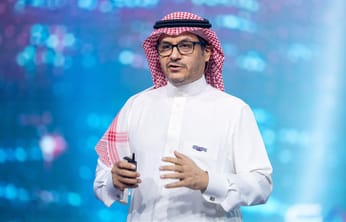
The Best Is Yet To Come
Saudi Arabia’s AI revolution is only just getting started, says Dr. Yaser Al-Onaizan, CEO of the National Center for

Meet the Saudi startup shaping the future of freight
TruKKer is exporting innovation to transform the movement of goods across the globe
The growth trajectory of a startup is often a direct reflection of the progress of the ecosystem it is born from– and the success of TruKKer is a shining example of the rapid growth of Saudi Arabia’s entrepreneurship sector.
Saudi Arabia-headquartered TruKKer, the region’s first on-demand truck aggregator, is gearing up to go public on the the Saudi Stock Exchange Tadawul in 2023. The company, which was formed in 2016, has raised more than US$200 million in a mix of equity and debt funding so far.
Tadawul is the largest stock exchange in the Middle East, and it has been the best performing of all emerging markets since the COVID-19 pandemic, with the bourse’s market capitalization up 24% year-on-year to reach $3.19 trillion in the first quarter of 2022. Tadawul’s market capitalization, or total value of all shares of all securities traded on the exchange, crossed $2.8 trillion in December.
TruKKer’s online marketplace offers Uber-like services for transportation by truck, connecting transporters with consumers and businesses to move goods. It receives the truck demand from clients, and then uses a predictive analytics matching system to source available trucks from individual truck or fleet owners. The spread between the cost paid to a vendor and amount a client is charged makes up TruKKer’s margin per trip.
SOLVING A GLOBAL PROBLEM
While the trucking industry worldwide -among one of the largest employing industries– has been afflicted by surging fuel prices, inefficiencies, and workforce shortages, TruKKer has succeeded in building a digital freight network that optimizes logistics, cuts costs, and helps support the livelihoods of land freight carriers. China’s Full Truck Alliance, a company with a similar business model, raised $1.6 billion through a US initial public offering (IPO) in 2021, giving it a valuation of about $20.6 billion.
“In hindsight, I was right to evaluate opportunities for an unorganized yet potentially very large total addressable market (TAM), which offers some unique and customized complexities across regions,” Gaurav Biswas, founder and CEO of TruKKer, said. “The intense fragmentation of supply was, and remains, the primary opportunity. But it revealed endless possibilities, starting with building of the digital network that standardizes basic processes and service level agreement (SLAs). Once you weave shippers, carriers, and stakeholders in an ecosystem, you have the avenue to fix everything. I foresaw a digital freight network that harbors live loads, connects supply with demand, tracks shipments on the go, and prompts post-transit intelligence, along with a data and analytics powerhouse that pumps in on-demand capacity, so that no market surge implies a threat to the immediate carrier strength, or minimizes impact of spikes. The technology and consolidated data source allows all parties to minimize operational friction with our product stack of digital communication tools.”
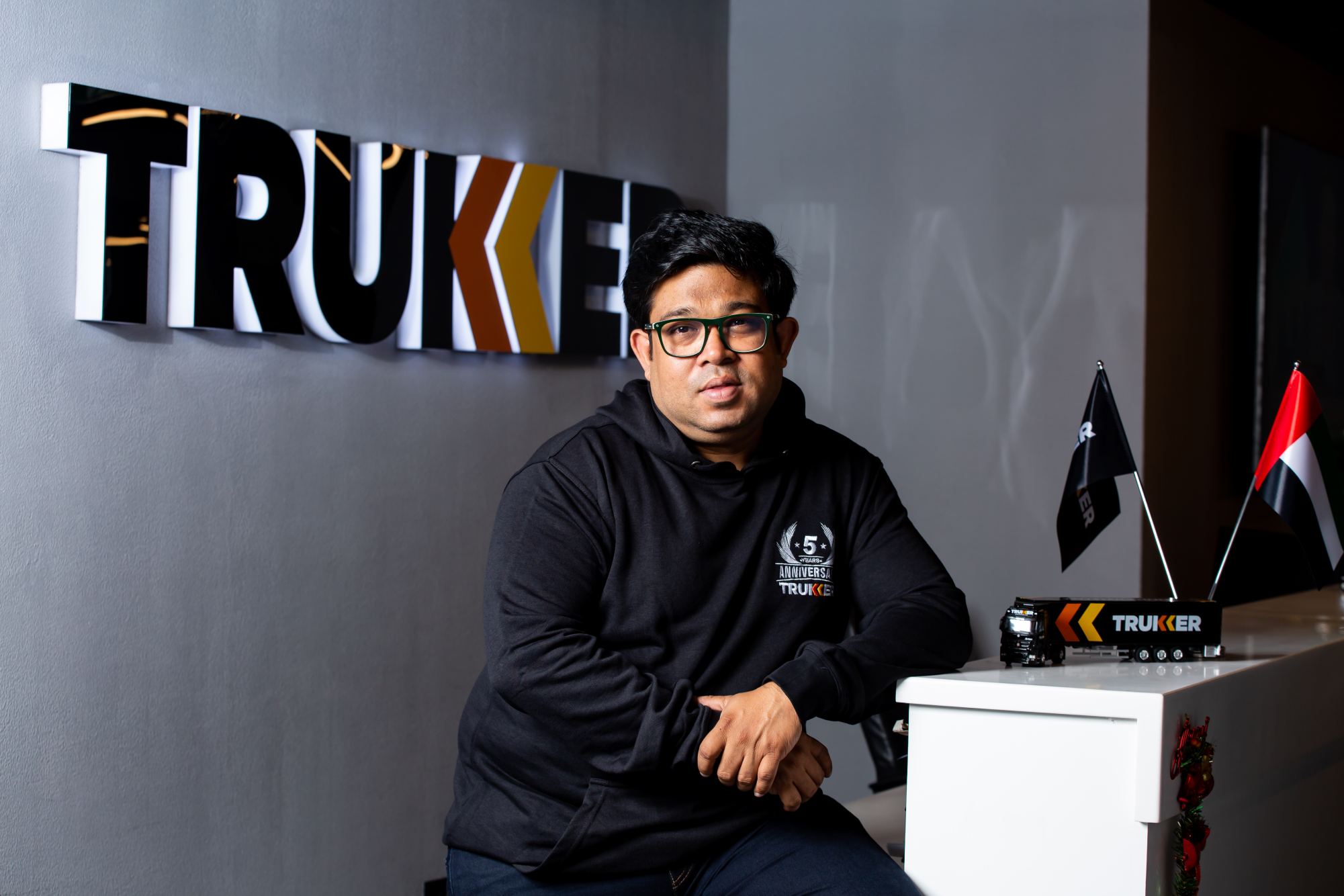
The scale of opportunity has enabled the Uber-like digital network to create a solution for a TAM of billions in the global enterprise sector, while proving the Kingdom to be an exporter of innovation, inline with its Vision 2030 economic diversification plan to transition away from oil dependence. Indeed, supporting tech startups is an instrumental pillar of Vision 2030.
TruKKer, a majority Saudi-owned company, now operates across three continents, moving cargo from tens of countries through its network of more than 55,000 lorries and pickup trucks across the Middle East and North Africa (MENA), Central Asia, and the company has also recently been making strong inroads into the cargo-heavy European trade lanes. Biswas, an Indian national, launched his enterprise in the UAE, but soon moved its base to the Kingdom on account of the excellent environment the Kingdom offered a company like his. TruKKer, which claims to have the largest digital freight network in the MENA, currently operates in the UAE, Saudi Arabia, Egypt, Bahrain, Jordan, Oman, Turkey, Poland, and Kazakhstan.
In 2021, the TruKKer also acquired Pakistan’s TruckSher, its first deal in the land freight industry. Most recently, TruKKer expanded its operations to Poland and Kazakhstan, the two key logistics centers in the European Union (EU) and Commonwealth of Independent States (CIS), located along the Belt and Road route at the crossroads of Eurasia.
Here, it’s worth noting that in the first half of 2022, the Middle East region received the largest share of China’s $28.4 billion investments through its Belt and Road Initiative (BRI), with Saudi Arabia being the single biggest recipient. The Kingdom topped the global rankings with $5.5 billion, according to research by the Shanghai-based Green Finance and Development Center (GFDC).
TruKKer’s model has also been especially resilient and popular amid the EU bloc’s macroeconomic headwinds. The startup currently serves more than 700 clients, managing more than 400,000 bookings manned by over 30,000 drivers, with significant growth on the horizon, given that the sector has reached historical highs since the COVID-19 crisis.
The global road freight industry was valued at about $3.1 trillion in 2020, and global road freight revenue is expected to grow by an average of 4.3% a year from 2020 to 2025, according to a Frost & Sullivan report. In the changed post-pandemic business landscape, another market research company, Reportlinker, forecast that the global market for freight trucking, estimated at $2.1 trillion in the year 2020, is projected to reach a revised size of $2.9 trillion by 2027, growing at a compounded annual growth rate (CAGR) of 4.7% over the analysis period 2020-2027. Meanwhile, a report by Transparency Market Research predicts that the global freight trucking market will attain an even higher valuation of $3.43 trillion by 2031.
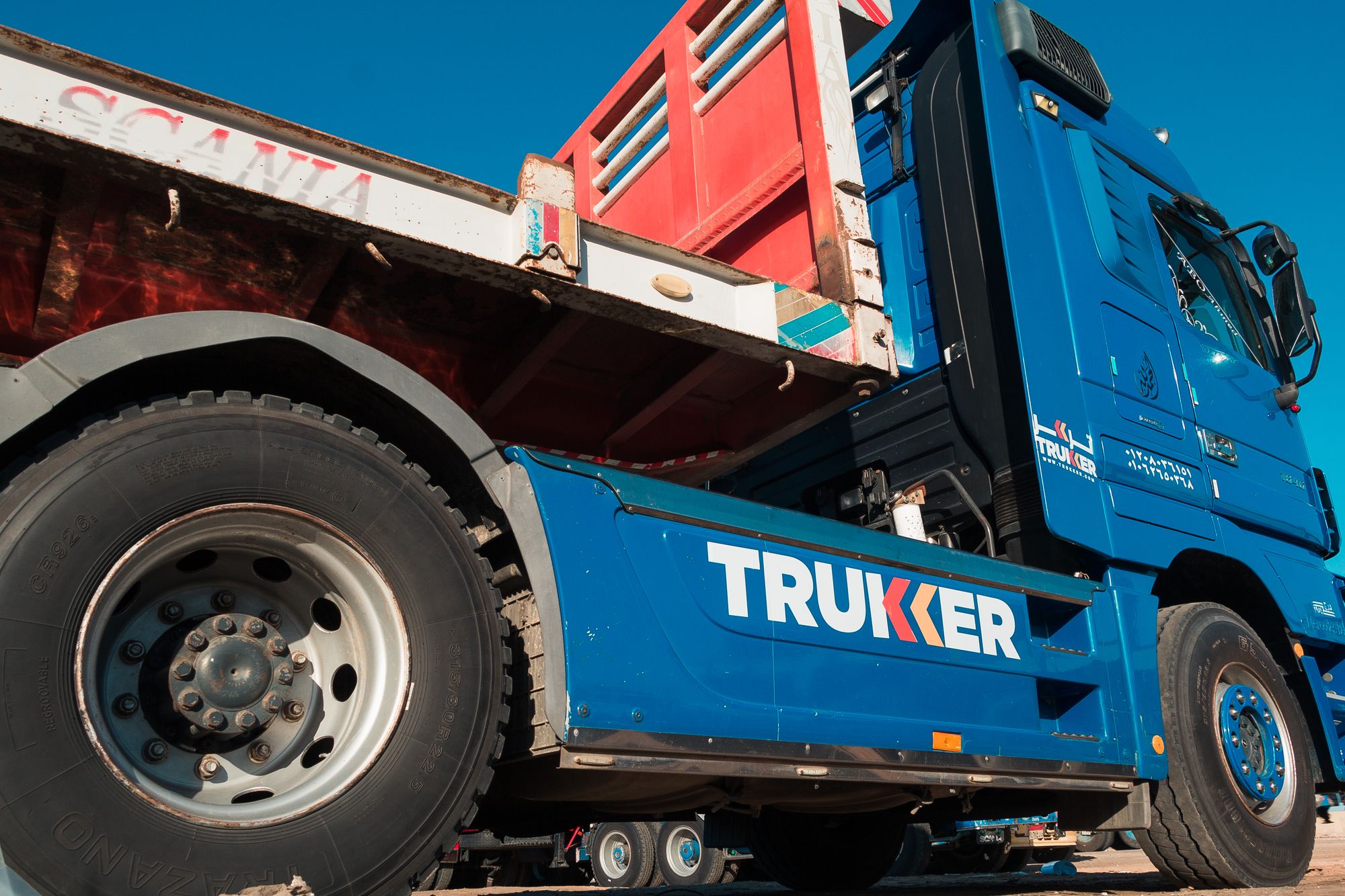
TRANSFORMING THE FUTURE OF FREIGHT
Freight transport is critical to economic growth and at the heart of global supply chains.
As the COVID-19 virus outbreak wreaked havoc, it also shone a spotlight on the fragility of supply chains, and underlined key bottlenecks in the trucking sector, including its lack of a standardized business processes, a fractured set of financial processes, and weak technology adoption.
Although these challenges have existed for decades, the crisis has created an urgency for innovation in the sector, signaling an inflection point that represents major opportunities to reshape the future of freight.
TruKKer’s home turf of Saudi Arabia acts as its most enabling environment for this transformation, and it will be among the key contributors to the company’s growth. At present, the majority of TruKKer’s revenue currently comes from its Saudi clients.
Saudi Arabia’s Vision 2030 program aims at positioning the country as a leading global trading hub, and connecting the Kingdom to the world, underlining the need for continuing efforts to improve supply chain efficiency and operation.
The Kingdom has announced plans to build a three million square meter integrated logistics zone in Riyadh, which aims to be “the world’s most innovative economic zone” as part of plans to strengthen the state’s competitive position as the largest and fastest growing nation in the Middle East.
Global tech giant Apple has signed up to be one of the anchor tenants of the proposed new zone, which is part of the Kingdom’s plan to quadruple the amount of cargo processed through its airports by 2030, to 4.5 million tons.
In line with transformation of the kingdom’s logistics sector, TruKKer has continued to accelerate its technology capabilities while expanding operations, growing business and raising funds.
But finding success in trucking is much more complex than running an Uber-like app.
“Our fundamentals have always been very clear to be focused on sustainable growth, always be numbers driven, and constantly innovate our processes,” Biswas said. “We are run with a traditional business mindset of making profit from a satisfied customer, but we clearly understand the benefits of large-scale, achievable from advanced technology. We have successfully invested adequate resources in building the digital platform along with a strong operating network infrastructure. We’re installing control and resilience in supply chains, equipping the stakeholders with a wide spectrum of artificial intelligence- and machine learning-powered data and predictive analytics, and investing in improving the service levels and standards of the logistics value chain in the region. Our load boards buzz with freshly listed hauls and shippers scale their business through unfettered access to carrier capacity. Payments, track-and-trace, analytics, live dashboards- whatever operational and functional aid you require, we have them within our platform.”
TruKKer’s essential capabilities also include the ability to finance instant payments to the small transporters and owner-operators, while offering standard credit terms for enterprise clients. Biswas also notes that product enhancements based on fundamentals of market-fit and commercial sustainability will continue to fuel the next stage of TruKKer’s growth. The company will also be firming up its environmental, social and governance (ESG) strategies in 2023, and focusing on finding synergies with relevant industries including electric vehicles, financial inclusion services, and financing of asset improvements in the land freight sector.
“We run an extremely flat organization of accountable teams that are results-oriented, objectives-focused, attuned to the firm’s strategic growth pursuits,” Biswas said. “We have successfully navigated through the challenges posed by the pandemic, and despite financial market instabilities and certain currency depreciations in some markets, our scale and diversity of revenue has ensured the constant growth and improvement in financial metrics. The network is well poised and ever scaling at improving unit economics. We are currently hauling more than 1,500 loads every day across our lanes, and we expect to continue our growth rate of achieving 100% annual growth until 2024.”
Biswas added that TruKKer’s evolution of data sciences will also create new monetization opportunities as the company scales into “complementary business model adjacencies” that address large scale pain points for the sectoral ecosystem.
AN INNOVATION-ENABLING ECOSYSTEM
TruKKer’s roadmap has attracted significant investment since it was founded, with its third round being in September 2022 that raised $100 million.
The Series C funding was led by Bahrain-based asset manager Investcorp, along with participation from Saudi Arabia-based Riyadh Valley Capital, Egypt’s Reliance Group, Iraq-based conglomerate March Holding, and Abu Dhabi sovereign wealth fund Mubadala Investment Company. TruKKer said in a statement that the funds would be used to expand into new and existing markets to accelerate growth before its planned float.
Mubadala’s investment was its second in TruKKer. In addition, the company is backed by other large institutional investors such as Abu Dhabi holding company ADQ, Riyadh-based venture capital (VC) fund Saudi Technology Ventures (STV), the World Bank’s International Finance Corporation (IFC), as well as Endeavor Catalyst, the investment arm of the leading global community of, by, and for high-impact entrepreneurs.
TruKKer also raised $96 million in February 2022 to fuel expansion of its operations– it was regarded as the highest Series B investment round in the MENA for the year. The startup had also raised $1.4 million in a seed round in 2017, followed by $23 million in a Series A round in 2019.
TruKKer also secured $10 million strategic venture debt from Silicon Valley-based firm Partners for Growth (PFG) in 2020, which was described as the largest-ever venture-debt in Middle Eastern tech history- it also marked PFG’s first investment in the region.
“We have been financially prudent while being successful in fundraising from some of the most sophisticated institutional investors in the region and globally,” Biswas said. “Saudi Arabia is taking impressive steps to attract foreign investment and create private-sector employment. The Kingdom has a very young population that is very entrepreneurial. They are getting support from the various public and private institutions, regulators, and investors to create new-age businesses in the region that drive the next phase of growth, and diversify the wealth of the nation. TruKKer has directly benefited from this, and it is proud to be creating more jobs, supporting local companies, and efficiently channeling investment towards a more efficient business ecosystem.”
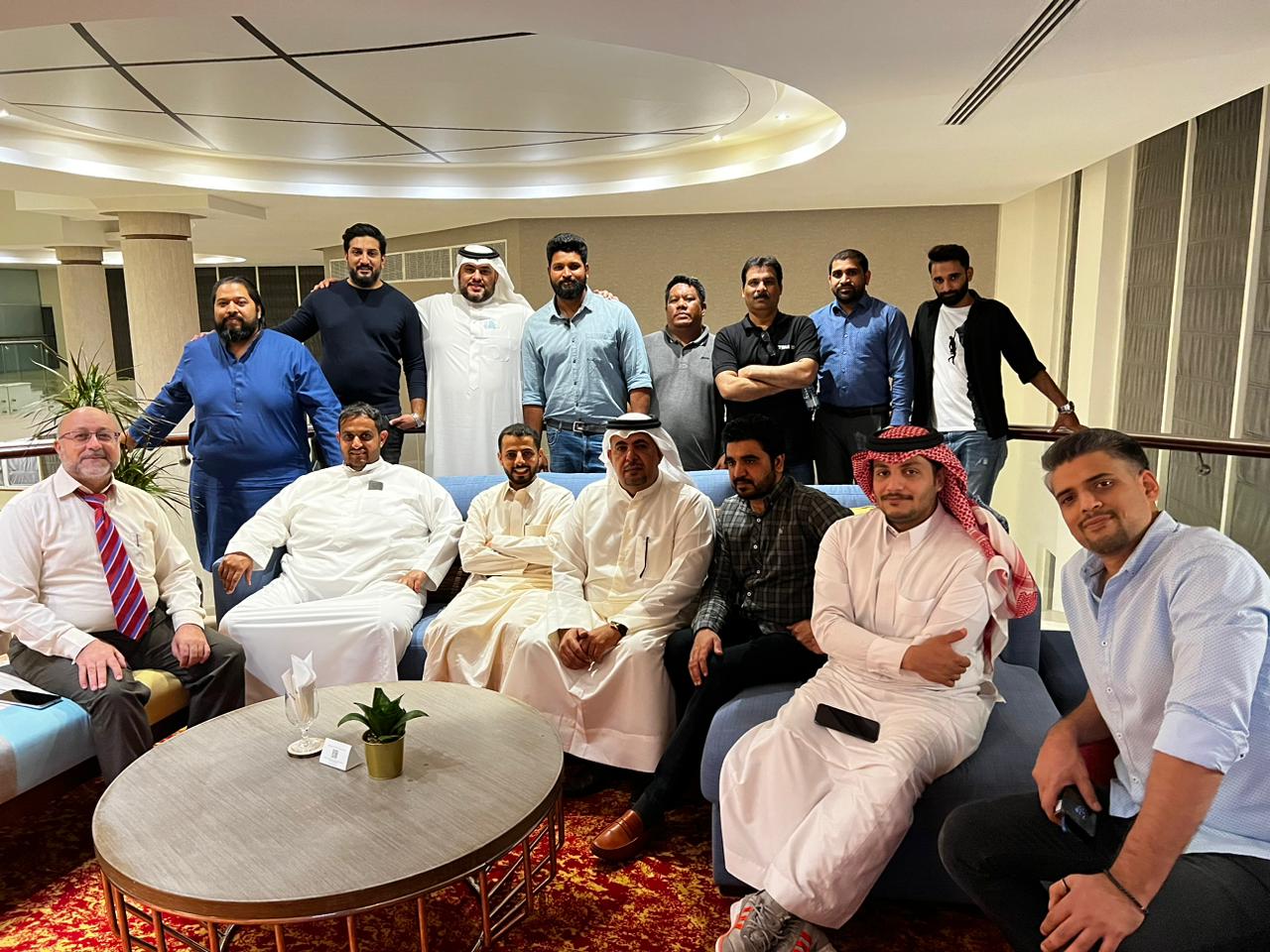
“A few examples have to include the excellent support offered by the Ministry of Investment of Saudi Arabia (MISA) for new startups to set up and grow in the Kingdom,” Biswas added. “They are focused on paring down the red tape, and allowing the entrepreneur to concentrate on their core business. The constant growth in investment capital from Saudi investors is also an enabling factor. TruKKer has been backed by the Riyadh Taqnia Fund since our seed stage, followed by STV, the large venture capital fund that led our Series A.”
Sweeping commercial, labor and governance reforms over the past few years have also driven new entrepreneurs to set up in the Kingdom. The growth of small and medium enterprises (SMEs) in 2022 was monumental, with the number of new enterprises in Saudi Arabia jumping 9.3% in the third quarter of 2022, according to government figures. A report by the General Authority for Small and Medium Enterprises, known as Monsha’at, showed that the number of firms reached 978,445 in the third quarter of 2022, up from 892,063 in the previous quarter.
“Another strong enabling factor is the rapidly evolving regulatory environment in the kingdom – one that is pro-entrepreneurship and focused on technology advancements,” Biswas noted. “Evolving regulations at Saudi Central Bank (SAMA) and the Capital Market Authority (CMA) are contributing towards Saudi Arabia evolving as an attractive regional capital market hub. Today, Saudi enjoys an easy-to-do business like no one- a business can be registered in just three minutes. Founders like me are welcomed to set up and grow businesses.”
The Monsha’at report also showed that venture capital funding in Saudi Arabia in the first nine months of 2022 witnessed a 93% year-on-year increase, totaling $820 million.
“Saudi Arabia is right at the center of the digital transformation happening in the region,” Biswas added. “It gives us immense pride to be participating in this dynamic transformation journey in these exciting times. I think the region has long suffered from misconceptions of being a conflict-prone, unstable, autocratic, and conservative part of the world. This has never been true, and it evinces a lack of knowledge for those who perceive it this way. Dubai has transformed into no less than a global city, and Saudi Arabia is taking the place of a growth powerhouse that fosters consumption and industrialization, and fast-positioning itself as the hub for innovation and entrepreneurship.”
“The Gulf, within the MENA region, has a high per capita consumption, political and economic stability, open capital markets, improving access to talent, a pro-business regulatory environment, low or no taxes, and world class infrastructure and cities,” he continued. “Saudi Arabia’s economic outlook is strong. The continued implementation of Vision 2030 policies will help further diversify and liberalize the economy leading to a stable growth. What more favorable playground would one need to succeed as a business?”
Now, as TruKKer continues expanding into new geographies while also preparing for its IPO, Biswas is excited about the road ahead. “We are preparing for an interesting year in 2023,” he said. “We expect the Gulf markets to continue growing, spurred by robust infrastructure and asset building in Saudi Arabia and the UAE, as they push towards diversification into non-oil sectors. We are bracing ourselves up for continued macro challenges in the European region, which will help us build a stronger, more resilient business in that market. Ultimately, we want to be an Arabian brand that has its services and ecosystem spread far beyond Arabia. And I do hope to see more businesses born and bred in the region creating serious imprints on the global map.”
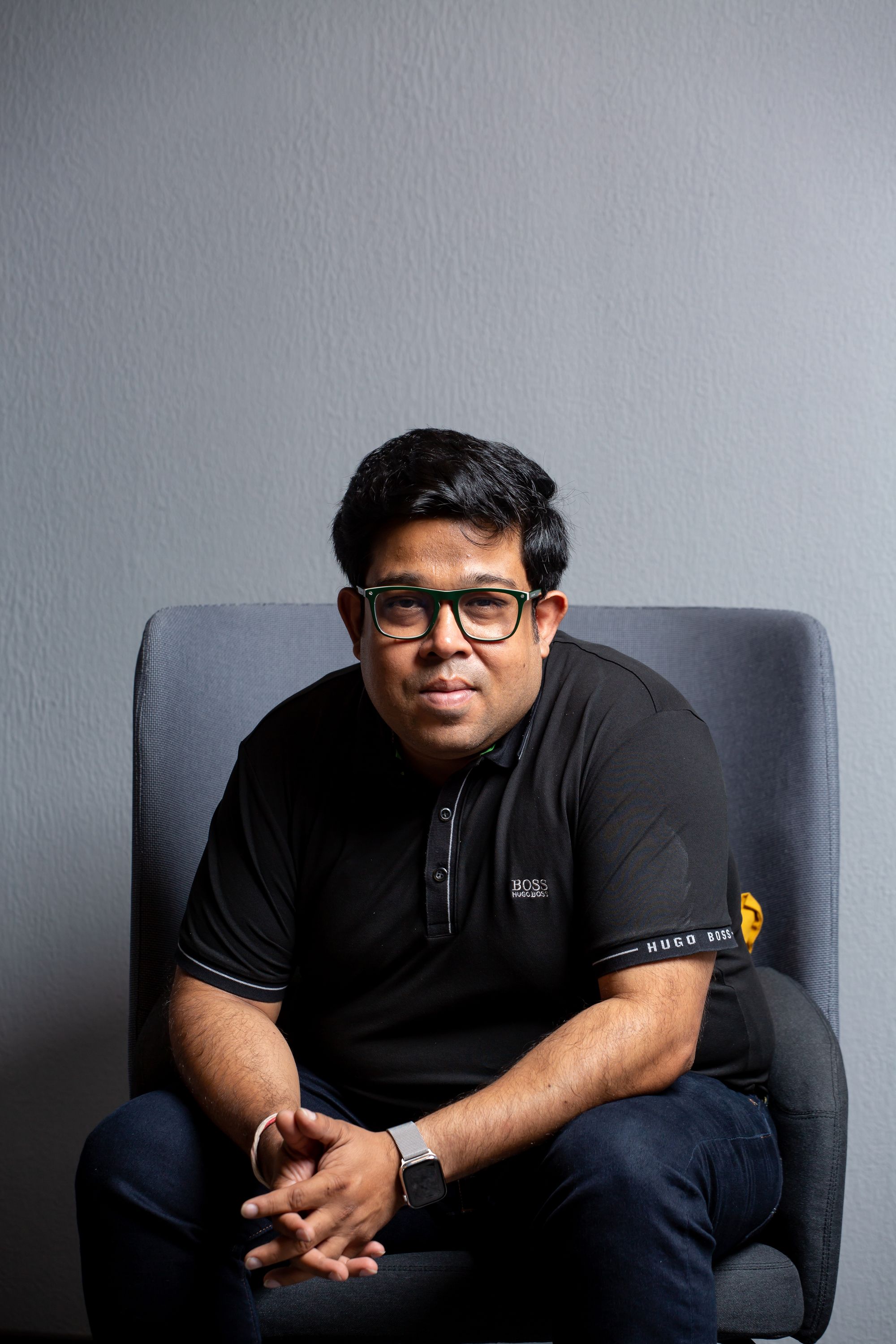
INSIDER TIPS
TruKKer founder Gaurav Biswas’ advice for businesses considering venturing into KSA
“Saudi Arabia represents a very attractive investment destination with energy prices are on the rise and boosted by robust economic reform. Some investors question the long-term sustainability of the kingdom’s economy given its dependence on a limited resource like crude oil. Whether or not the government’s diversification into other industries will work out remains to be seen, but it offers unique opportunities that are not available in other markets at the moment.
Saudi Arabia regularly runs strong account surpluses thanks to its significant crude oil revenues, which gives the government funds to spend on economic development programs to stimulate the economy further. Saudi Arabia’s government has also taken measures to privatize certain industries, such as electricity and telecom, to open up its market to further investment from the outside, particularly in non-energy markets.
Foreign companies and ventures that aspire to be in KSA and the wider region must focus on ensuring their products and services cater to localized nuances. They must invest in local talent and communities to create long-term businesses that enhance their ecosystem, and all its associated stakeholders. Saudi Arabia has witnessed strong growth in multiple large family-owned conglomerates that have played an important role in the kingdom’s development, along with large state managed enterprises. Entrepreneurship and open capital markets will fuel the next phase of economic growth.”
Discover the most outstanding articles.اكتشف أبرز المقالات.

Harnessing the power of digital twins to reimagine cities across the KSA and beyond. According to PwC’s 2022 report,

How Riyadh-based The Garage is contributing to a flourishing startup culture in Saudi Arabia In the heart of Riyadh, nestled

Saudi astronauts Rayyanah Barnawi and Ali Alqarni make history in giant leap for the kingdom. From earthbound dreamers to cosmic